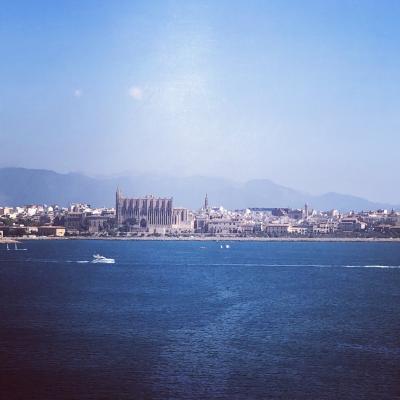How does Palma's local cuisine contribute to its cultural experience?
Similar Topics
palma
mallorca
local cuisine
culinary heritage
ensaimada
sobrasada
tumbet
mediterranean influence
mercado de olivar
cultural identity
Palma, the capital of Mallorca, boasts a rich culinary heritage that reflects the island's diverse history and cultural influences. Local cuisine is characterized by its use of fresh, local ingredients, prominently featuring seafood, seasonal vegetables, and local meats. Dishes such as *ensaimada*, a spiral-shaped pastry, and *sobrasada*, a cured sausage, are iconic to the region and highlight traditional Mallorcan flavors.
Furthermore, Mallorca is known for its hearty dishes like *tumbet*, a ratatouille-like dish made with layered vegetables and potatoes, and *pa amb oli*, rustic bread topped with tomato, olive oil, and cheese or cured meats. The Mediterranean influence is also evident in the use of fresh herbs and olive oil, which are staples in Mallorcan cooking.
The local cuisine is often celebrated in vibrant markets, such as Mercado de Olivar, where visitors can experience the lively exchange of culinary traditions. Food plays a central role in local festivals and gatherings, promoting community cohesion and showcasing Mallorca's agricultural heritage. Thus, indulging in Palma's local dishes is not just a gastronomic experience but also an integral part of understanding the island’s cultural identity and traditions.
Furthermore, Mallorca is known for its hearty dishes like *tumbet*, a ratatouille-like dish made with layered vegetables and potatoes, and *pa amb oli*, rustic bread topped with tomato, olive oil, and cheese or cured meats. The Mediterranean influence is also evident in the use of fresh herbs and olive oil, which are staples in Mallorcan cooking.
The local cuisine is often celebrated in vibrant markets, such as Mercado de Olivar, where visitors can experience the lively exchange of culinary traditions. Food plays a central role in local festivals and gatherings, promoting community cohesion and showcasing Mallorca's agricultural heritage. Thus, indulging in Palma's local dishes is not just a gastronomic experience but also an integral part of understanding the island’s cultural identity and traditions.
🧩 Related Questions
Related Question
What significance do tomb portraits have in the cultural heritage of Mallorca’s cemeteries?
Related Question
How does Mallorca’s Catalan identity influence the island’s art and craft scenes that tourists might encounter?
Related Question
What role do water mills play in the cultivation of olives and almonds in Mallorca?

